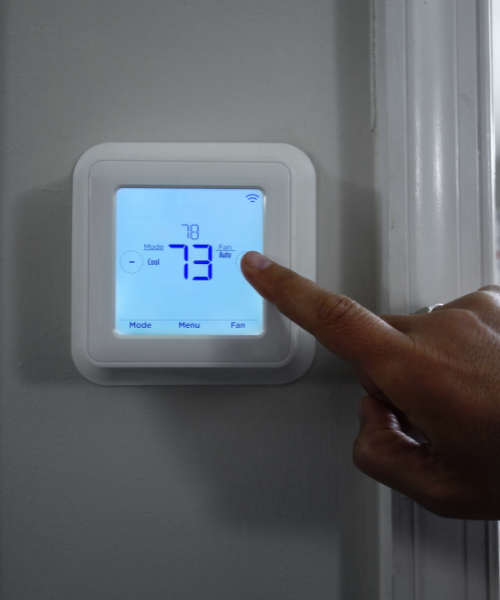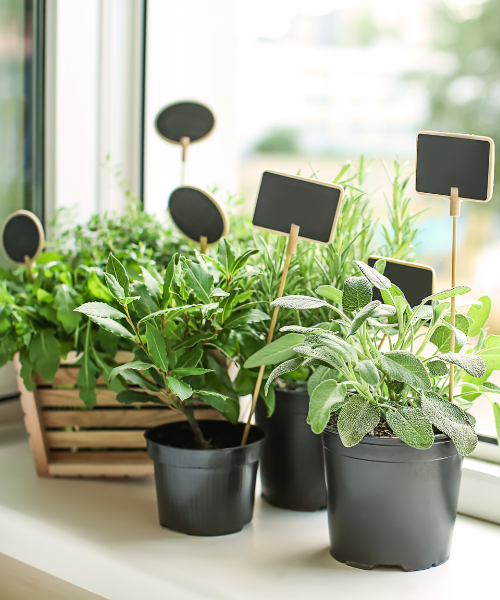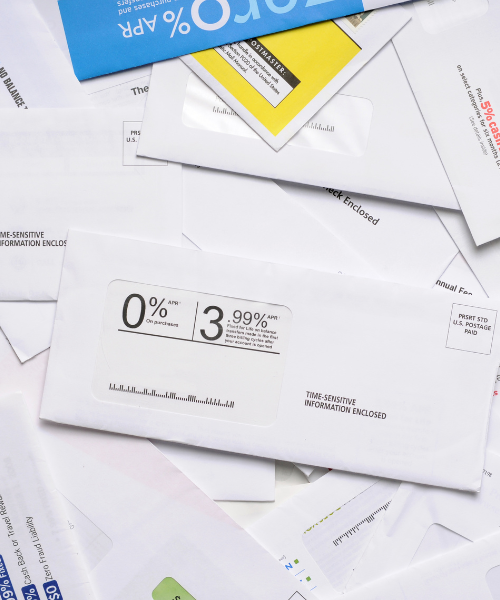You don’t have to be a homeowner to make your living space greener. Take Care of Texas has compiled a list of easy, renter-friendly ways to live more sustainably, without making costly upgrades to someone else’s property.


Change or clean your AC filter monthly
This may not be a chore that’s on your monthly to-do list—or one that’s even on your radar—but regularly cleaning your filter can save a lot of energy (and money). Filters can get clogged up fast, making your AC unit work harder to cool down your home. So, make sure to clean or replace your filter every month to keep your unit working efficiently.
Adjust your thermostat
Heating and cooling are two of the biggest consumers of energy in your home. Turning your thermostat up in the summertime and down in the winter can save you hundreds of dollars on your energy bill. To keep cool in the summer, turn on the ceiling fans. In the winter, reverse your ceiling fans to rotate counterclockwise to force the warm air down and set the fan to a low speed.
Start a small indoor compost bin
You don’t need to have a lot of land or even a backyard to have a compost bin, you just need a plastic bin, food scraps, and time! Composting is a great way to keep food out of the landfill and create nutrient-rich fertilizer for your plants. The easiest method of composting for small indoor spaces is to make a worm-composting bin. Check out this article from the EPA to learn how to build your bin out of household materials.

Use nontoxic cleaning solutions
Keep your home spotless without the harsh chemicals! Glass cleaner, multipurpose spray, drain cleaner, and more can be made with household products like vinegar, baking soda, and hydrogen peroxide. You can get the green cleaner recipes here.
Tell your landlord about leaks
Did you know a leaky faucet can waste up to 3,000 gallons of water per year—enough to take 180 showers? Make sure to notify your landlord or leasing office as soon as you notice a leaky pipe, faucet, or toilet.
To see if your toilet has a leak, place food dye into your toilet tank, wait at least 30 minutes, then look to see if any dye has leaked into the bowl. If dye is present in the bowl, you have a leak and should send in a maintenance request.
Grow a hydroponics garden
Even if you don’t have a yard or balcony, you can still grow small plants, herbs, or even vegetables in your space! You can regrow veggie and herb scraps like lettuce, green onions, and basil or propagate house plant cuttings like pothos and snake plants, in a cup of water. Find out how to grow an indoor hydroponics system out of repurposed material in this hydroponics blog.

Reduce, Reuse, Recycle
Incorporating the three Rs into your daily habits can reduce waste and conserve resources. Think: using reusable grocery bags, buying less, and recycling metal, plastic, and paper. If your rental doesn’t offer curbside recycling, check with your city or county to see if they offer a recycling drop-off. Making the extra effort to prioritize sustainability can make a big difference.
Shorten your shower
Conserve water by taking a shorter shower! Shortening your shower by just 5 minutes can save an average of 12.5 gallons of water. This adds up to saving over 100 gallons per month!
Unplug devices when not in use
Some devices like televisions, gaming consoles, and computers continue to consume electricity when they are turned off. Plugging electronics into a power strip provides a convenient “turn-on/turn-off” point to prevent standby power usage. This habit not only conserves energy, it also saves money!

Thrift for furniture
The EPA estimates that nearly 12 million tons of furniture waste is generated annually. Buying secondhand furniture from thrift stores, garage sales, and online marketplaces helps conserve resources, reduce waste sent to landfills, and reduce emissions from producing new furniture. So don’t let your neighbor's beautiful mid-century modern coffee table go to waste, turn it into a one-of-a-kind piece loaded with character!
Utilize natural light
Even apartment dwellers can save money and electricity by using blinds and shades. Blocking out the sun in the summertime will keep your place cooler, while opening your blinds in the winter will allow the sun to come in and warm your home. If your apartment doesn’t have blinds, consider installing curtains.
Opt out of junk mail
More than 78 billion pieces of junk mail are distributed each year. Most of this unwanted junk mail ends up in our landfills. By visiting the Consumer Credit Reporting Industry website and the Direct Marketing Association’s Mail Preference Service website, you can opt out of prescreened credit and insurance offers, as well as unsolicited commercial mail. If you do receive unwanted mail, make sure you recycle it!
Sustainability isn’t just for homeowners! Checking for leaks, adjusting your thermostat, and utilizing natural light are easy actions you can take whether you rent a house, apartment, or other living space. By making small changes to your daily life, you can minimize your environmental impact and adopt a more sustainable lifestyle no matter where you live.